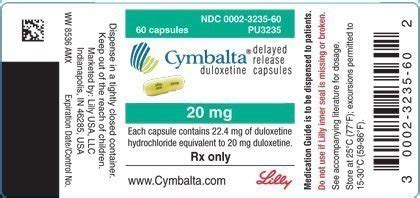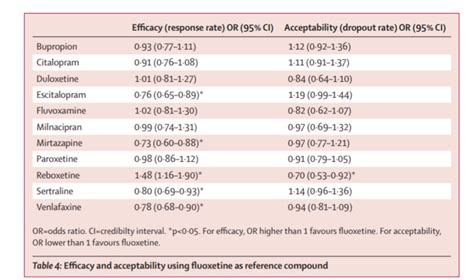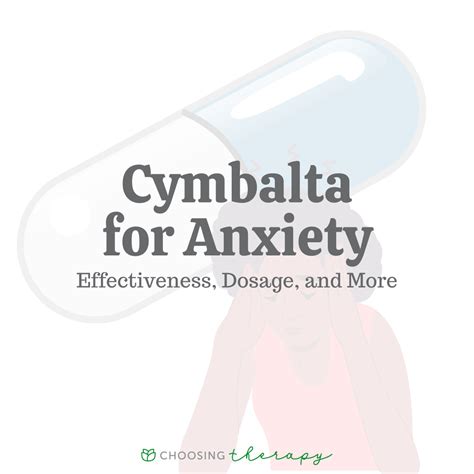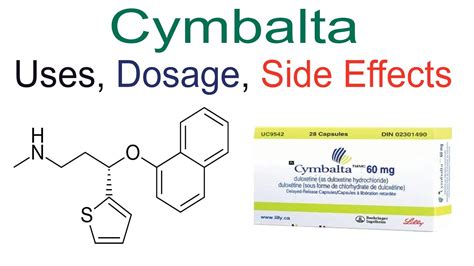Intro
Learn about Cymbalta 30mg dosage, uses, and side effects. Discover proper administration, warnings, and precautions for this antidepressant medication, including benefits for anxiety and fibromyalgia treatment.
The use of Cymbalta, also known by its generic name duloxetine, has become increasingly prevalent in the treatment of various mental health conditions and chronic pain management. As a selective serotonin and norepinephrine reuptake inhibitor (SSNRI), Cymbalta works by altering the levels of certain natural substances in the brain, thereby improving mood and reducing pain. One of the most common dosages prescribed is Cymbalta 30mg, which is often the starting point for many patients. Understanding the appropriate use, benefits, and potential side effects of this dosage is crucial for both healthcare providers and patients.
Cymbalta is primarily used to treat major depressive disorder, generalized anxiety disorder, fibromyalgia, neuropathic pain, and chronic musculoskeletal pain. Its efficacy in managing these conditions has made it a valuable option in psychiatric and pain management therapies. However, like all medications, Cymbalta must be used under the guidance of a healthcare provider, as its effects can vary significantly among individuals. The 30mg dosage is typically considered a low to moderate dose, suitable for initiating treatment to gauge a patient's response and tolerance.
The decision to prescribe Cymbalta 30mg is based on several factors, including the patient's medical history, the severity of their condition, and their potential for drug interactions with other medications they are taking. It is essential for patients to disclose all their current medications, including over-the-counter drugs and supplements, to their healthcare provider to minimize the risk of adverse interactions. Moreover, patients should be aware of the potential side effects associated with Cymbalta, such as nausea, dry mouth, and dizziness, which are more common at the beginning of treatment and often diminish over time.
Cymbalta 30mg Dosage Benefits

Working Mechanism of Cymbalta 30mg
Cymbalta's mechanism of action involves the inhibition of serotonin and norepinephrine reuptake. By preventing the reabsorption of these neurotransmitters, Cymbalta increases their availability in the synaptic cleft, enhancing neurotransmission. This action is believed to contribute to its antidepressant, anxiolytic, and analgesic effects. The dual-action mechanism sets Cymbalta apart from selective serotonin reuptake inhibitors (SSRIs), which primarily affect serotonin levels.Cymbalta 30mg Administration and Precautions

Potential Side Effects of Cymbalta 30mg
While Cymbalta 30mg is generally well-tolerated, patients should be aware of potential side effects, which may include: - Nausea and vomiting - Dry mouth - Dizziness or lightheadedness - Fatigue - Increased sweating - Constipation - Decreased appetiteIn rare cases, more severe side effects can occur, such as serotonin syndrome, allergic reactions, or severe skin reactions. It is crucial for patients to report any side effects to their healthcare provider promptly.
Cymbalta 30mg and Pregnancy

Cymbalta 30mg Dosage Adjustment
The dosage of Cymbalta may need to be adjusted based on the patient's response and tolerance. For some conditions, such as major depressive disorder, the dosage may be increased to 60mg once daily after a minimum of two weeks of treatment, as prescribed by a healthcare provider. However, dosage adjustments should be made cautiously and under close supervision to minimize the risk of side effects.Cymbalta 30mg vs. Other Dosages

Practical Considerations for Patients
- Patients should take Cymbalta at the same time each day to maintain consistent drug levels. - It is essential to continue taking Cymbalta as prescribed, even if symptoms improve, to prevent relapse. - Patients should not stop taking Cymbalta abruptly, as this can lead to withdrawal symptoms. Instead, they should consult their healthcare provider for a gradual tapering schedule.Cymbalta 30mg Interactions

Statistical Data on Cymbalta Efficacy
Numerous studies have demonstrated the efficacy of Cymbalta in treating depression, anxiety disorders, and chronic pain conditions. For instance, in clinical trials for major depressive disorder, Cymbalta has shown significant improvements in depressive symptoms compared to placebo. Similarly, in trials for fibromyalgia, patients treated with Cymbalta experienced significant reductions in pain severity.Cymbalta 30mg and Mental Health

Cymbalta 30mg and Quality of Life
Improvements in symptoms of depression, anxiety, and chronic pain can lead to substantial enhancements in quality of life for patients taking Cymbalta 30mg. This includes better sleep, improved appetite, increased energy, and enhanced physical functioning. Furthermore, by reducing the emotional and physical toll of these conditions, Cymbalta can facilitate patients' participation in social and occupational activities, thereby promoting a fuller and more satisfying life.Cymbalta 30mg Conclusion and Future Directions

We invite you to share your thoughts and experiences with Cymbalta 30mg in the comments below. Your insights can provide valuable perspectives for others considering this treatment option. Additionally, if you have questions or concerns about Cymbalta or its use, please do not hesitate to reach out to a healthcare professional for personalized advice.
What is the primary use of Cymbalta 30mg?
+Cymbalta 30mg is primarily used to treat major depressive disorder, generalized anxiety disorder, fibromyalgia, neuropathic pain, and chronic musculoskeletal pain.
How should I take Cymbalta 30mg?
+Cymbalta 30mg should be taken orally, once daily, with or without food, as directed by your healthcare provider.
Can I stop taking Cymbalta 30mg abruptly?
+No, you should not stop taking Cymbalta 30mg abruptly. Instead, consult your healthcare provider for a gradual tapering schedule to avoid withdrawal symptoms.
What are the common side effects of Cymbalta 30mg?
+Common side effects of Cymbalta 30mg include nausea, dry mouth, dizziness, fatigue, and increased sweating. If you experience any of these side effects, consult your healthcare provider.
Can I take Cymbalta 30mg during pregnancy?
+While there is limited data on the use of Cymbalta in pregnant women, it is essential to discuss the potential risks and benefits with your healthcare provider before taking Cymbalta 30mg during pregnancy.
